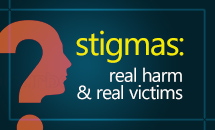Wellness Toolbox Helps You Build Your Mental Health
June 21, 2013 Leave a comment
You can begin building your mental health now with the tools available in the Wellness Toolbox from Depression and Bipolar Support Alliance.
The Toolbox has three sections. In the “Blueprints” section, you can set goals for recovery, check symptoms, and learn how to find and get help from a doctor. In the “Tool Belt” section, you learn about wellness, develop wellness strategies, track your health, manage symptoms and triggers, and address negative thinking. In the “Manual” section, you track your treatment and medications.
The tools are generally short and simple to use, some more helpful than others. Overall, this is a site you may find useful for information and guidance your building your own well-being.
 Related Articles
Related Articles